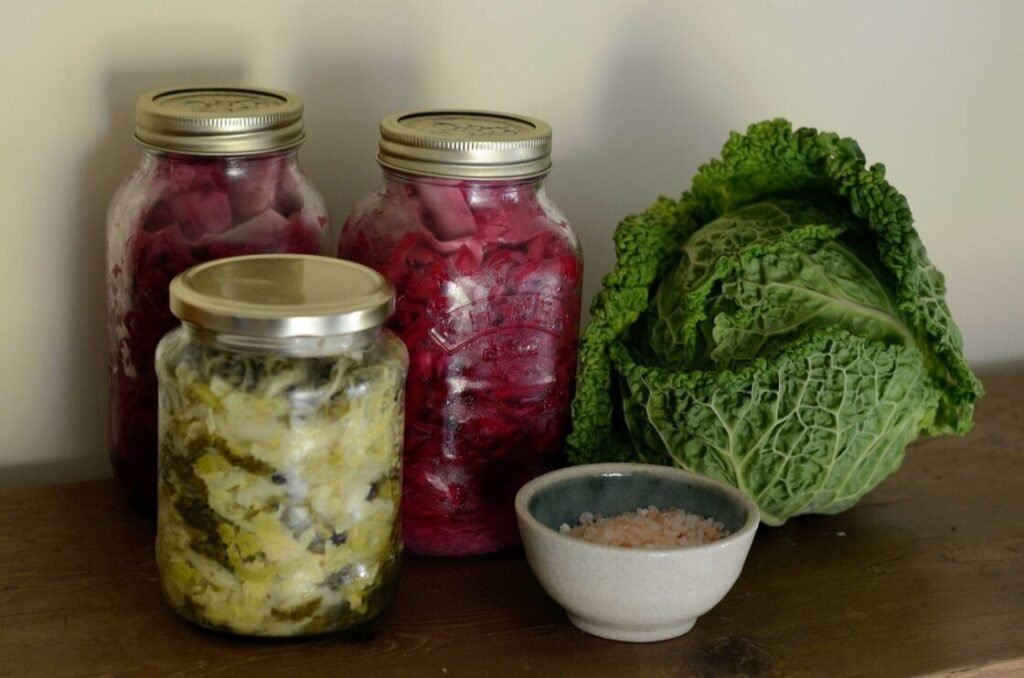The Science of Fermentation: Health Benefits of Yogurt, Kimchi, and More!"

What exactly is fermentation all about? Fermentation is a natural metabolic process that uses microorganisms like molds, yeast, and bacteria to turn sugars and carbohydrates into organic acids or alcohol. Food has been preserved and its flavor enhanced through this process, which takes place in anaerobic conditions (without oxygen) for thousands of years.
Fermentation research goes back to the time when ancient societies learned to use microorganisms to change substances. Yogurt is produced when milk is fermented, but sauerkraut and kimchi are produced when vegetables are fermented. The flavor, texture, and health benefits of each variety of fermented food are influenced by its microbial community. Fermented foods have been a standard in diets around the world for years now, and their popularity is on the increase once again. From sour yogurt to spicy kimchi, these meals not only tempt our taste senses but also offer a lot of health benefits.
The Health Benefits of Fermented Foods

- Improves Gut Health
The beneficial effects of fermented foods on intestinal health are among its most important advantages. Fermented foods contain abundant probiotics, or live beneficial bacteria, which help maintain a healthy gut microbiome. Immune system performance, nutrition absorption, and digestion all depend on a healthy gut microbiota.
Consuming probiotics has been found to help reduce digestive problems such as gas, bloating, and constipation. By rebalancing the gut flora, Lactobacillus, and Bifidobacterium strains found in foods like yogurt and kefir support gut health.
- Boost Immune System
A robust immune system is intimately associated with intestinal health. Since the gut contains a sizable amount of our immune system, keeping the microbiome in balance can help prevent infections and illnesses. By encouraging the generation of antibodies and bolstering immune cell activity, probiotics, which are present in fermented foods, might improve immunological responses.
- Enhanced Nutrient Absorption
Fermentation can increase the bioavailability of nutrients in food. For instance, certain fermented foods break down anti-nutrients—compounds that inhibit nutrient absorption—found in raw grains and legumes. By fermenting these foods, we can enhance our bodies’ ability to absorb essential vitamins and minerals. For example, fermented soy products like tempeh and miso are not only rich in protein but also provide better absorption of nutrients such as iron and zinc compared to their non-fermented counterparts.
- Mental Health Benefits
Emerging research suggests a connection between gut health and mental well-being—a phenomenon often referred to as the “gut-brain axis.” Studies have shown that probiotics may help reduce symptoms of anxiety and depression by influencing neurotransmitter production in the brain.
- Weight Management
Incorporating fermented foods into your diet may aid weight management efforts. Some studies suggest that probiotics can help regulate appetite hormones, improve fat metabolism, and reduce fat storage in the body. Additionally, fermented foods are often lower in calories than their non-fermented counterparts while still providing satisfying flavors.
- Delicious Variety
Beyond their health benefits, fermented foods add depth and complexity to our meals. The fermentation process enhances flavors through natural sourness or umami notes, making dishes more enjoyable without relying on excess salt or sugar. For instance:
- Yogurt: A creamy delight packed with probiotics; perfect for breakfast or as a snack.
- Kimchi: A spicy Korean side dish made from fermented vegetables; it adds a kick to any meal.
- Sauerkraut: Fermented cabbage that pairs beautifully with sausages or sandwiches.
- Kombucha: A fizzy fermented tea that serves as a refreshing alternative to sugary drinks.
How to Incorporate Fermented Foods into Your Diet

Now that you know about the incredible benefits of fermented foods, how can you start incorporating them into your daily meals? Here are some simple tips:
- Start with Yogurt: Choose plain yogurt (preferably with live cultures) as a base for smoothies or parfaits topped with fruits and nuts.
- Add Kimchi to Your Dishes: Use kimchi as a flavorful topping for rice bowls or tacos; it adds spice and probiotic goodness!
- Experiment with Sauerkraut: Top your sandwiches or salads with sauerkraut for an extra crunch and tangy flavor.
- Sip on Kombucha: Swap out sugary sodas for kombucha; it’s refreshing and packed with probiotics.
- Try Fermented Vegetables: Incorporate various pickled vegetables into your meals—these can be great additions to salads or grain bowls.
- Make Your Own: Consider making your fermented foods at home! Simple recipes for yogurt, sauerkraut, or pickles can be fun projects that allow you to customize flavors.

To sum up, fermented foods are more than simply delicious treats; they are also nutrient-dense foods that promote general wellness. We can improve gut health and enjoy every bite by learning about their science and using them in our meals! So feel free to experiment in the kitchen with these delicious delicacies!

